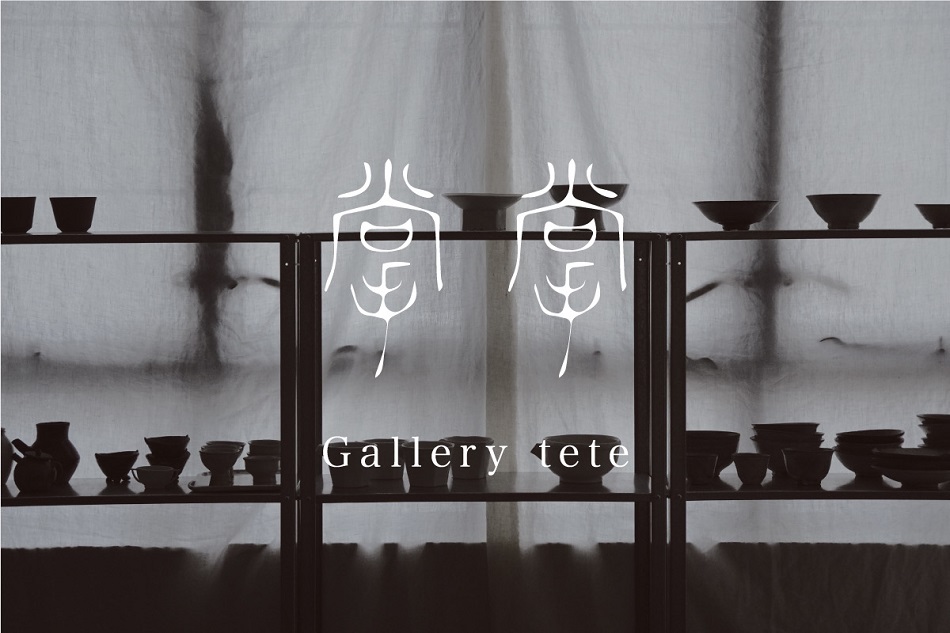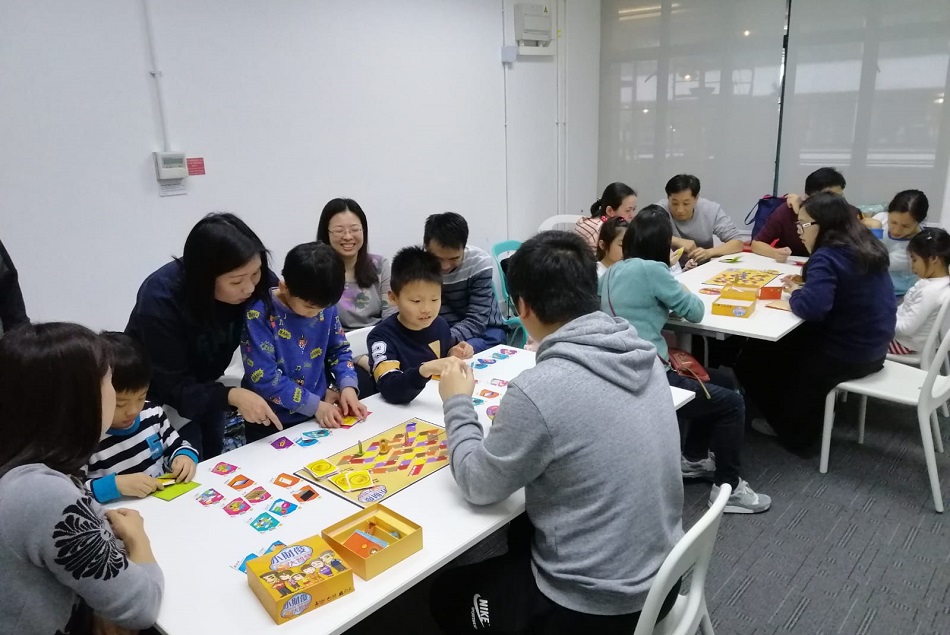Leisure & Culture #32
Thank You, Posterist
Hui See-wai
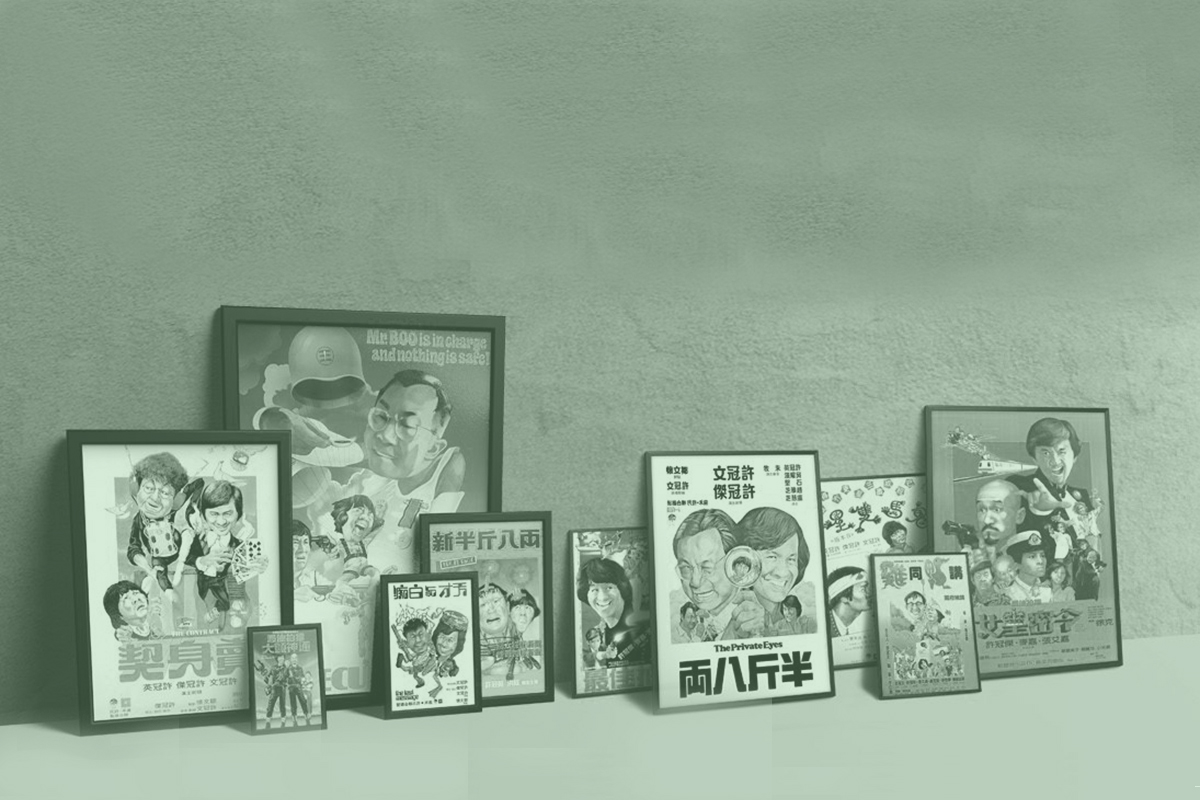
Written by Kit Chan
Translated by Derek Leung
Photos by Hui’s Film Production
Interview arranged by MOViE MOViE (nowTV ch116)
Uncovered in a dim and cluttered warehouse are rolls of unexposed posters.
Unveiled in clouds of raised dust are great classics of Hong Kong cinema in the 1970’s and 1980’s: The Private Eyes, The Last Message, Security Unlimited, The Contract… , all bearing the signature of the painter at the bottom right corner: Tai-Yung Yuen.
This is the first shot of The Posterist, a documentary film about Yuen’s art.
Directed by See-Wai Hui, son of respected director cum actor Michael Hui, the documentary enables all to rediscover an unsung hero of the local film industry through a couple of casual chats and interviews. Raised in the field of illustration, Yuen drew approximately 200 movie posters from 1975 to 1992. In addition to a series of record-breaking blockbusters produced by Hui’s, his masterpieces of art also comprise the overseas edition posters of Bruce Lee’s The Big Boss, Fist of Fury, Way of the Dragon, and The Game of Death, as well as nearly all posters of the films produced by Cinema City in the 80’s.
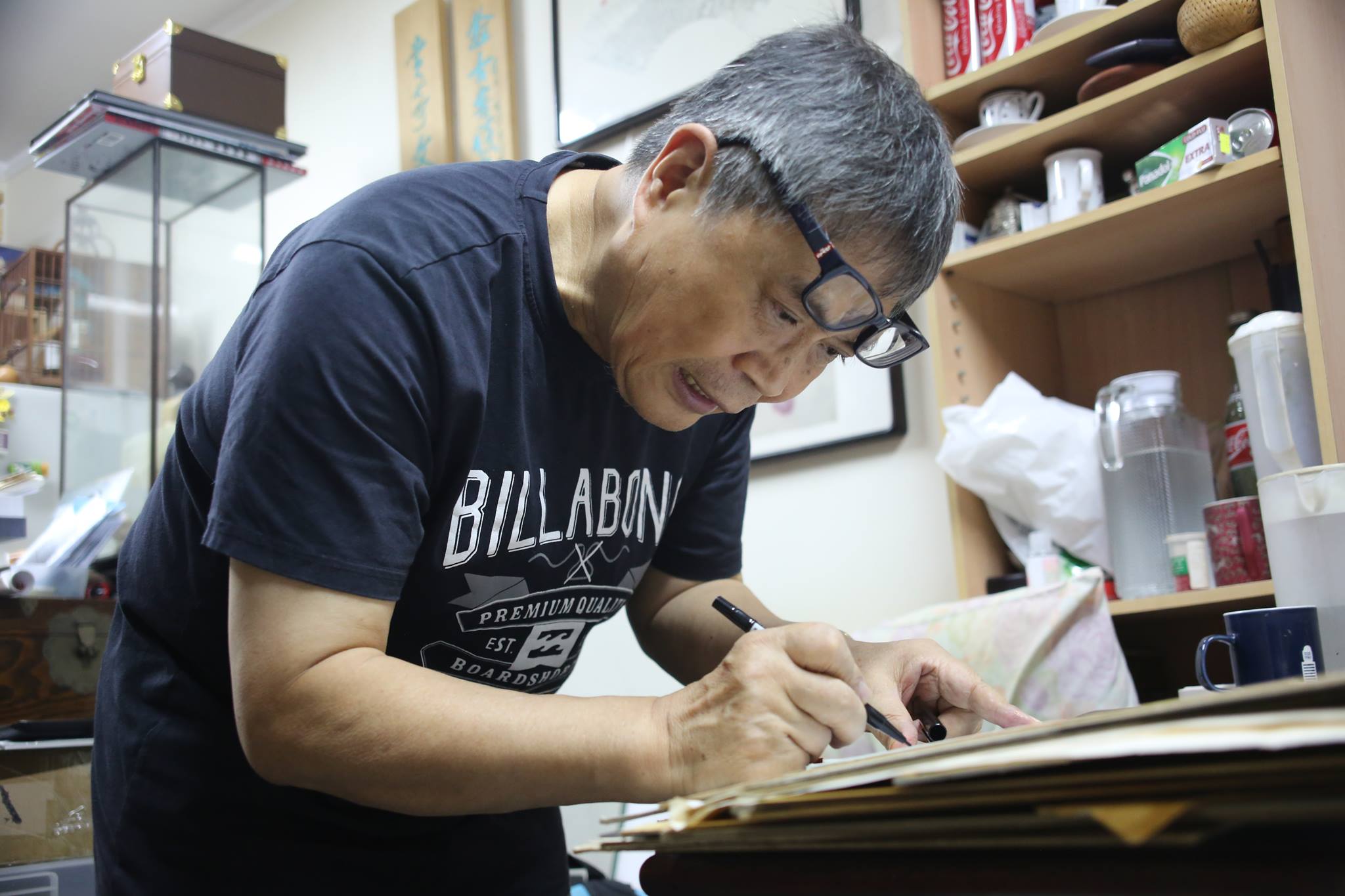
Tai-Yung Yuen – a vital role at the peak of the Hong Kong film industry.
While Yuen may not be a popular name to the last generation of Hong Kong, his witty and delicate brush strokes are never rare to movie poster lovers. Senior illustrator Adam Chow describes him as the facilitator of the birth of modern illustration, whereas the local media even crown him Father of Hong Kong Film Posters.
"So far, Mr Yuen’s achievement can’t be matched with any other local posterist," opined See-Wai.
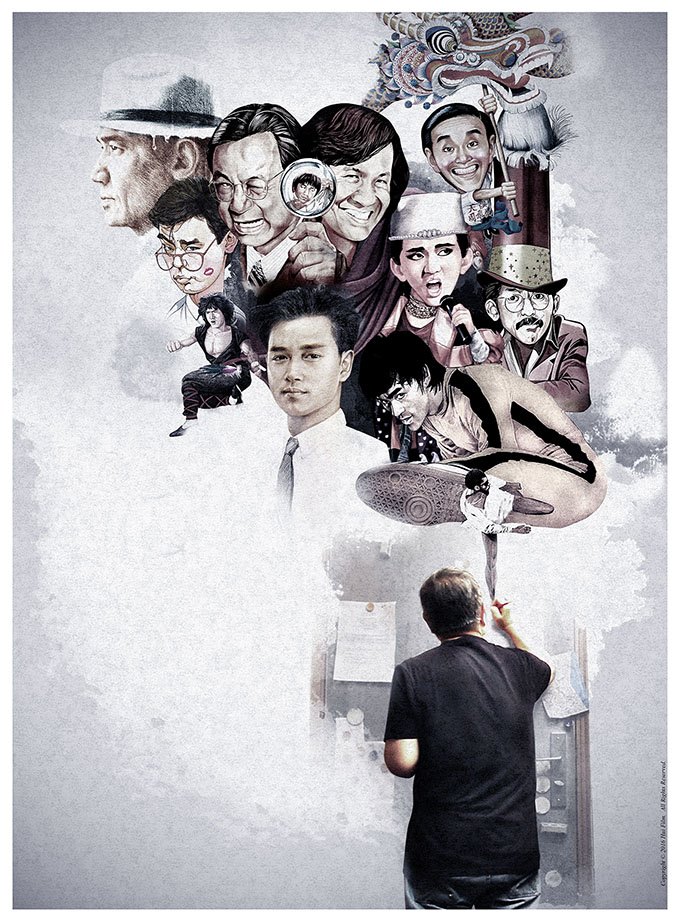
His dexterous hand enlivens the characters of the posters.
What has to be noted is, instead of the giant oil painting billboards hung outside the cinemas, Yuen drew the posters for the theatre lobby and outdoor promotion uses, each of which was standardized as 30.5 x 20.5 inches in the 70’s but was suggested by Cinema City to be enlarged to 39.5 x 26 inches in the 80’s. Like the huge billboard painting requiring special techniques, the original movie poster drawing also demands a master’s hand and a creative mind, definitely proving an unparalleled artistic creation.
"With a bunch of film stills, Mr Yuen would be able to draw a story in the poster and point out the relationships among and the characters of the acting roles," said See-Wai with unimaginable awe. "Illustration software like typeface was not popular those years, and every single detail had to be drawn by hand."
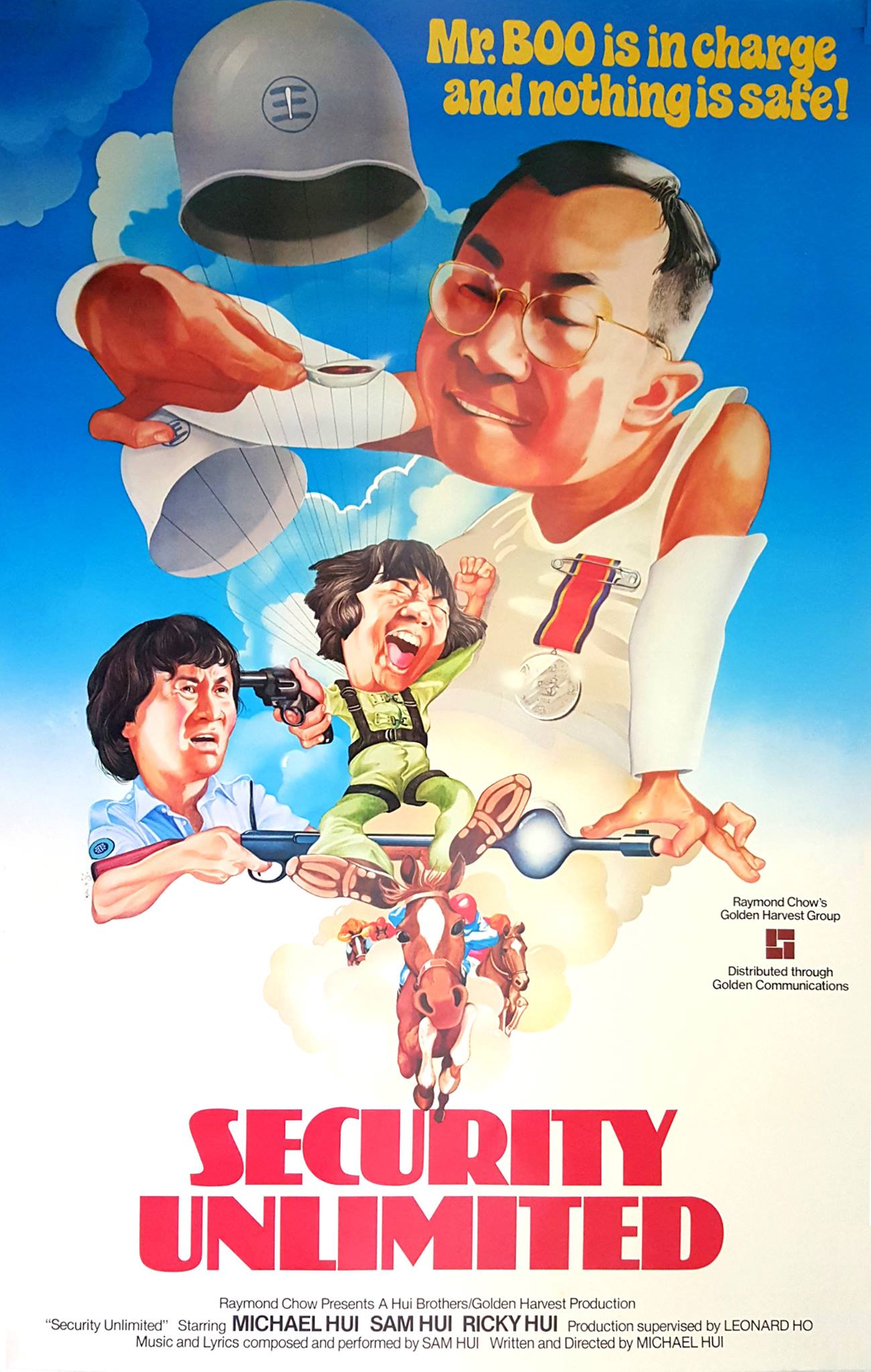
Security Unlimited is See-Wai Hui’s favourite among Yuen’s masterpieces.
Leaving the world of entrepreneurship to inherit the practice of movie production from his previous generation, See-Wai produced the documentary because of something unexpected. When he was responsible for the high-density restoration of Hui's productions including Chicken and Duck Talk, Mr Coconut and The Magic Touch almost two years ago, he saw the warehouse of the company packed with masses of old posters and therefore came up with an idea to give out those posters as gifts for any DVD purchase. To his surprise, some poster-collecting movie fans finally came and asked, "Are there any by Tai-Yung Yuen?"
See-Wai was wondering who that Yuen was.
He asked a few established showbiz names including Eric Tsang, Patrick Kong and Philip Chan about Yuen but all those who knew this posterist had no idea about his status quo. However, thanks to the arrangement and introduction by a poster collector, both See-Wai and Yuen, who have been somewhat connected but have never known one another, finally met.
What See-Wai now still remembers is the moment Yuen came with a photo of his with Michael and singer-actor Sam Hui. "He’s an absolute gentleman without the so-called artist's temperament. He told me the respective story of every single poster. Oh, it’s awesome! Every story is so good!"
Later, See-Wai arranged his father Michael to have a tea gathering with Yuen and joked about the need of taking photos for them after decades of acquaintance without meetup. And it was this that became the idea and the onset of the documentary.
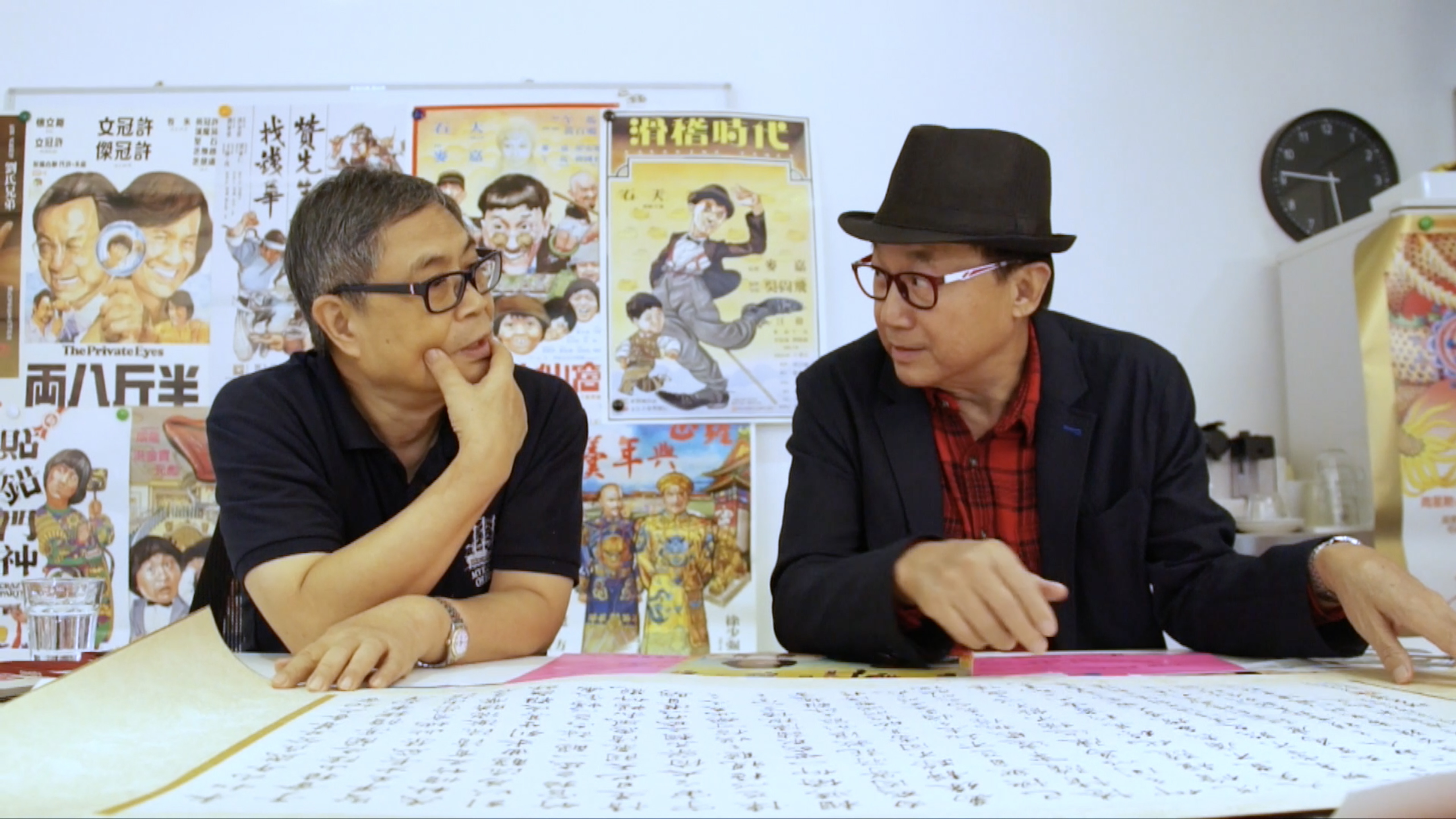
"The whole thing is kind of a feeling of ‘going back home’," said See-Wai with great interest after settling down to review the 40-year-old posters embedded with social implications and sentiments. "Michael is mainly for making fun, Sam playing music and Yuen doing creative arts. These three individuals are from different art backgrounds but all they’ve made are timeless classics."
Yuen drew his first poster for The Last Message in 1975, followed since then by a total of 16 posters for respective films produced by Hui’s. Mostly without any discussion before and after the poster design, both sides relied on trust and understanding in such cooperation.
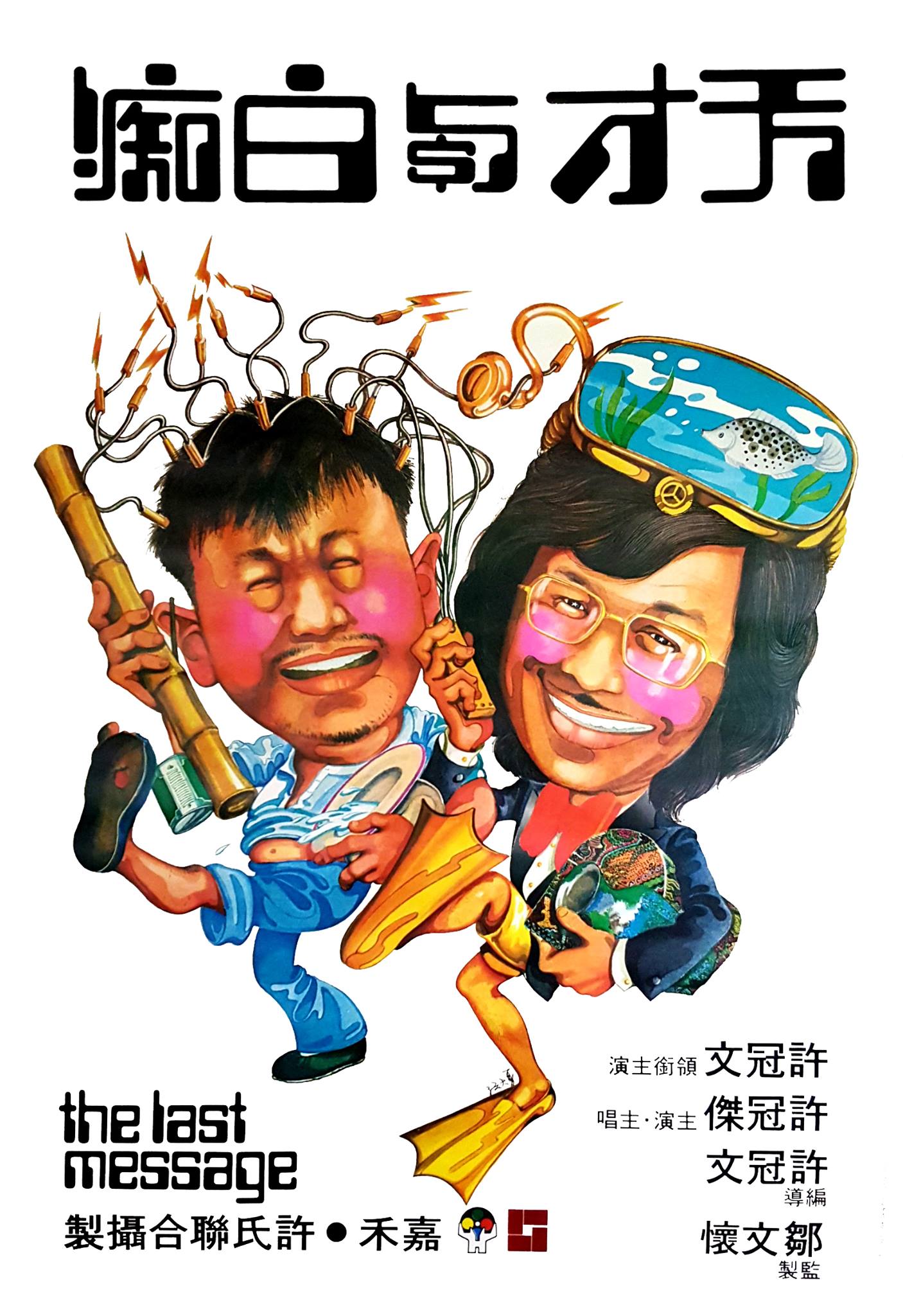
The Last Message is Yuen’s first film poster and first cooperation with Hui’s brothers.
Subsequent to the shutdown of Cinema City in 1992, Yuen moved to New Zealand and stopped painting. Not until 2007 when his wife passed away did he draw again and complete two portraits for her. One of the worth-watching scenes in the documentary is Yuen’s latest way of painting by standing straight to draw relaxingly on the paper nailed on an iron door.
"He said the vision might be tilted and there might be variance in terms of proportion in drawing when the paper is placed flat on a desk."
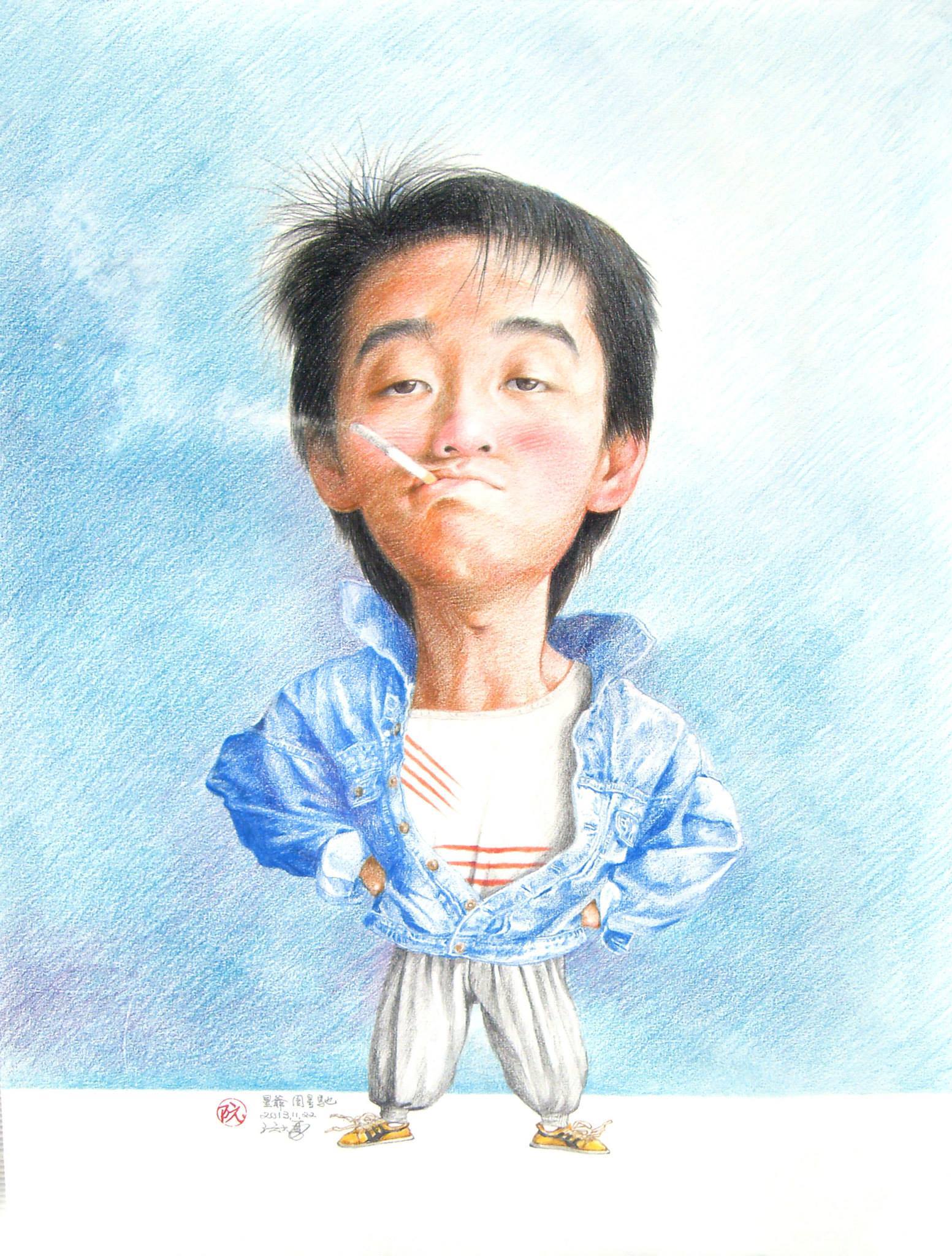
The Stephen Chow in his drawing exhibits the grassroots temperament.
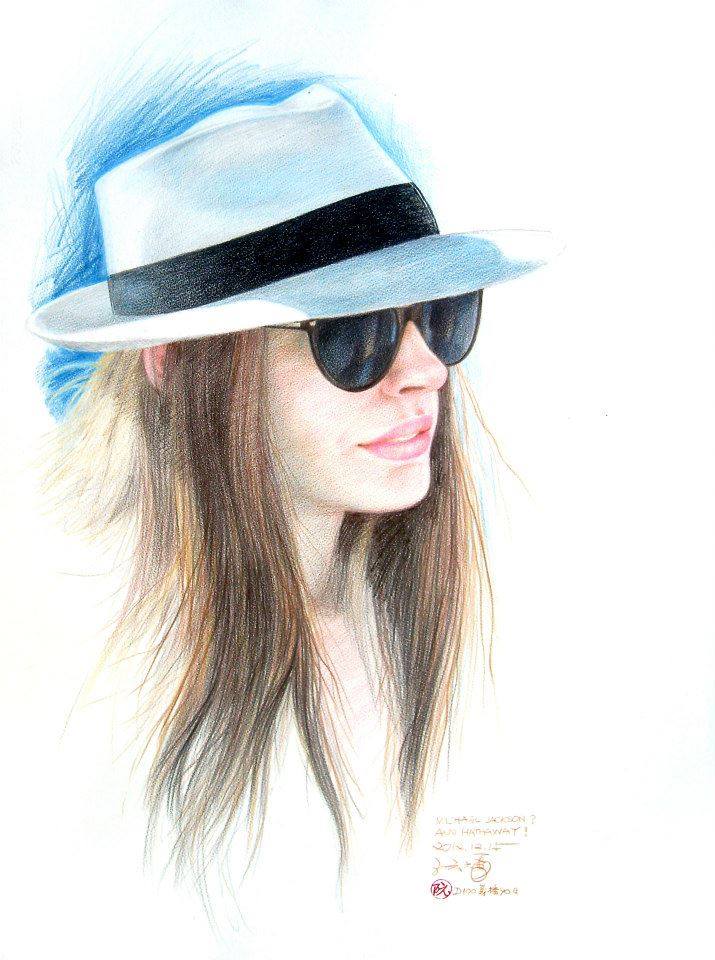
Yuen has recently been focusing on portraits and actress Anne Hathaway is one of his targets for practice.
See-Wai named the documentary The Posterist as a special warm tribute to a group of art workers commonly referred to as "painting guys" years ago. "Look at the American poster designer Drew Struzan. He’s well known for his time-honouring designs in the series of Star Wars, Indiana Jones and Back to the Future, and everyone knows who the designer is."
That said, Yuen thought he did not deserve the title of The Posterist and requested the director to change the title for a few times: "How about The Illustrator? After all, I was doing illustration at that time."
Such modesty is what Yuen impresses See-Wai the most after both getting along with each other for just as short as about a year. "If you ask him (what he feels about being a renowned posterist), his answer will always be making a living and supporting a family only," claimed See-Wai. "He’s very down-to-earth and doesn’t care about what talent and achievement are." This is indeed correlated to what the Chinese name of Yuen’s painting studio means and what he as well insists on practicing in his life: move back, step back and think back.
See-Wai reiterated that the film is solely produced from his own feeling, and it is a timeless and boundless cross-media presentation of thanksgiving instead of a tribute to the respected.
"Mr Yuen always said The Last Message brought him a bright career. Yet, without his poster painting, will those movies look the same? At that time, a film poster is the very first impression and even the success benchmark of a movie."
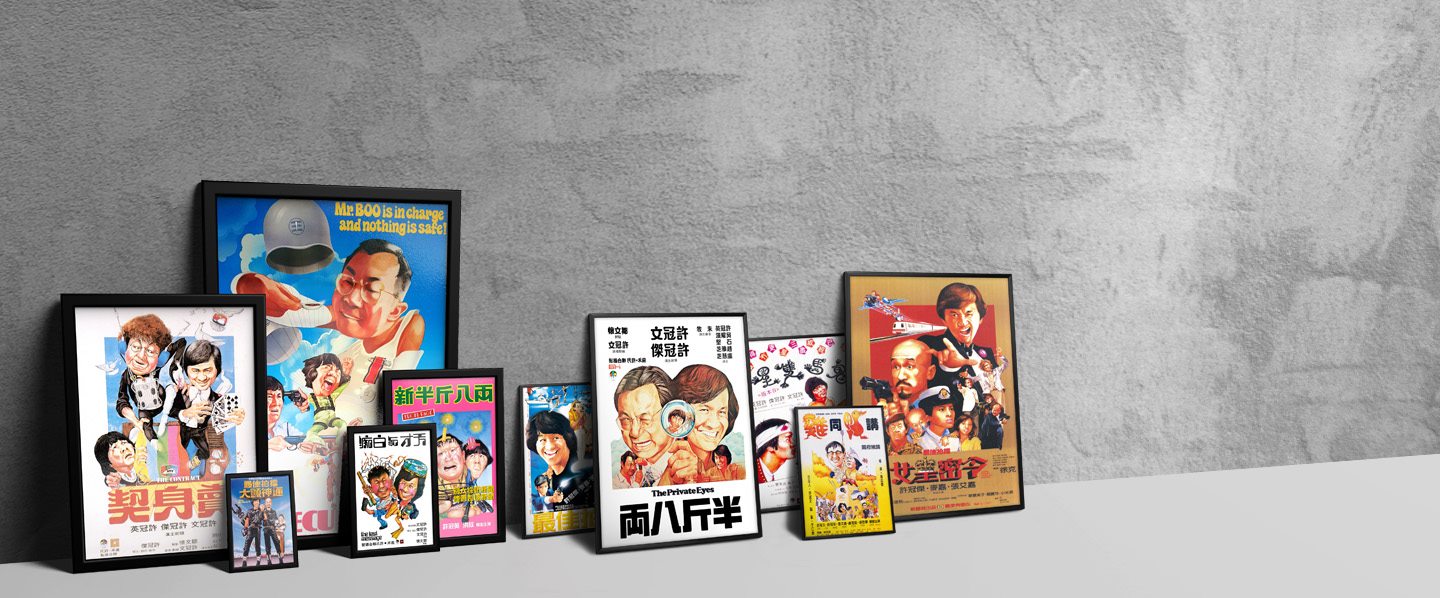
He believed that Yuen’s relationship with Hong Kong merely originates from nothing but the film posters.
Given that, Hong Kong people should thank the posterists for their incessant drawing and styling for the movies behind the scenes since they sent everyone fervent hope for those "Coming Soon" films in an era of limited entertainment.
(Coming Soon 1 of 2)

